« March 2013 | Main | May 2013 »
April 30, 2013
Discovery: Who, if anyone, to depose? And how to get ready.
Even for "minimalists", intelligent discovery in a complex business case is hard, especially in its early stages, where you may be working a bit in the dark in the first few depositions.
Even when things go well, litigation is expensive and disruptive in unexpected ways. Seasoned GCs are not impressed that your client has a "good" or even "strong" case on law and facts. They are not likely to think your claim or defense is cool. Frankly, he, or she, wanted, "no case".
Nothing personal--but the client didn't really want to hire you, or anyone. So sorry. The client is not that happy for you.
So how do you make each of the first few depositions a fact-finding and case-building but highly efficient triumph? A success. But success here also meaning not "feeding the monster".

Wait. Do we even need to take this deposition?
Even for "minimalists", intelligent discovery in a complex business case is hard, especially in its early stages, where you may be working a bit in the dark in the first few depositions. You need planning--which trial lawyers do not always love--and not just great instincts. Planning way early and in advance of actual trial is distasteful and downright nerdy to many of us. Planning. It's like reading the directions, or inspecting a rental car. Planning has no glamour.
But do it anyway. Plot. Craft. Write it down. Outline. Plan. This deposition isn't really about you, is it?
Above: Auguste Rodin's first cast of "The Thinker" (Le Penseur), 1902, Bronze and Marble, Musée Rodin, Paris.
Posted by JD Hull at 12:59 AM | Comments (0)
April 29, 2013
Romain Rolland: "There are no living beings but those who create."
There is no joy except in creation. There are no living beings but those who create. All the rest are shadows, hovering over the earth, strangers to life. All the joys of life are the joys of creation: love, genius, action.
--Romain Rolland (1866-1944), Nobel Prize winner, in "Lightning Strikes Christophe".
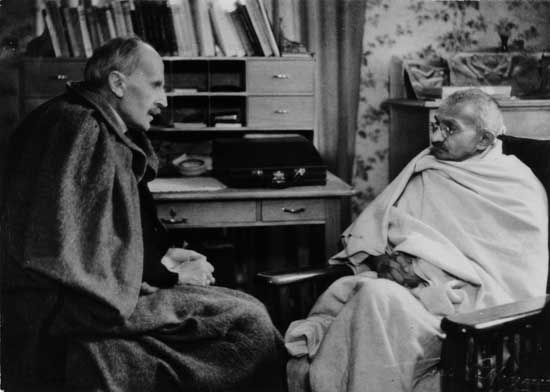
Rolland and Gandhi in Villeneuve, Switzerland, 1931.
Posted by Holden Oliver (Kitzbühel Desk) at 10:59 AM | Comments (0)
Sigourney Weaver: "I need a woman about twice my height."
I need a woman about twice my height. Statuesque. Raven-tressed. A goddess of the night.
--John Barlow and Bob Wier, "I Need a Miracle"
She lives forever at our Pantheon. Patrician. Five foot eleven. Stanford and Yale. Born October 8, 1949, she is 63 years old. A miracle every day, Jack.

Source for Photo: Beautiful Ones
Posted by Holden Oliver (Kitzbühel Desk) at 03:59 AM | Comments (0)
April 28, 2013
The Horror: Devil Perfectionism.

Stressed GC: "The Dweebs. The Dweebs."
It's not school. It's no longer about you.
Rule 10: Be Accurate, Thorough and Timely--But Not Perfect. So practicing law is getting it right, saying it right and winning--all with a gun to your head. But being accurate, thorough and timely are qualities most of us had in the 6th grade, right? Back when everyone told us we were geniuses and destined for great things? Well, school's out--now it's about real rights, real duties, real money and personal freedom. That's a weight, and it should be. Get used to that.
Suddenly facts are everything--and the actual law less important than you ever imagined. In time you learn to research, think and put things together better and faster.
You develop instincts. You learn there is really no boilerplate and no "cookie-cutter" work.
You also learn there are no "right answers"--but several approaches and solutions to any problem. You are being asked to pick one. But at first, and maybe for a few years, being accurate, thorough and on time is not easy to do.
I have clients? One day, you start to visualize your clients as real companies and real people with real problems. These are your personal clients, your firm's clients but always your clients--not your supportive and ever-approving parents or professors--and they are all different. Clients. You "feel their pain", and the pain is now yours, too.
Mistakes. If you work with the right mentors and senior people, they will allow you to make mistakes. You need freedom to make mistakes. You'll be reminded, however, not to let those mistakes out of the office. It's a balancing act, a hard one.
Really bad days? Your problem, Amber. You are expected to be a professional and put clients first on your worst damn day. A parent is sick, you are coming down with something yourself, your boyfriend is cheating on you, both of your boyfriends are cheating on you (and maybe with each other), your teenage kids "hate" you, and this morning you had to abandon that 12-year-old Honda you had in law school on the 14th Street Bridge. And minutes before your big afternoon meeting or court appearance, a GC or co-worker calls you with the worst possible development, something unexpected and beyond your control, in a project for your favorite client.
These things will happen. And happen together.
You think you're pretty tough. But you sag visibly--like an animal taking a bullet.
And in five minutes, you have to be at your very best. Again, it's not about school. It's no longer about you. You're beaten--beaten bad--but you have to get up and fight for someone other than yourself.

You up for this? Because, in our experience, very few of your peers are.
Bucking Up, Using Fear. And while you can't work in a state of constant worry, fear and paralysis, talking yourself into heroics, getting a little paranoid and even embracing a little fear won't hurt you, and may even help. You are being paid both (1) to be accurate, thorough, timely and (2) to just plain "not screw up".
“Thorough” means "anticipating", too. What makes you really good in a few years is being able to "see the future" and spot a ripple effect in a flash. To take a small example, if your client is in an active dispute with the government or on the brink of a full-blown litigation with a competitor, the client's and many of your own letters and e-mails aren't just letters and e-mails. Whoa, they are potential exhibits, too. They can be used for you or against you. So they need to be written advisedly and clearly so that they advance your position and so that a judge, jury or someone 5 years from now can look at it cold and figure out what's going on. No "talking to yourself" here; think "future unintended consequences" when you think and write.
"But Not Perfect." Not talking about mistakes here. I refer to the paralysis of high standards. I know something about the second part of Rule 10--because I tended to violate it when I was younger. And I still want to.
Perfectionism is the Great Destroyer of Great Young Associates. Don't go there. Don't be so stiff and scared you can't even turn anything in because you want it "perfect" and you keep asking other lawyers and courts for extensions. It's not school, and it's no longer about you. Think instead about Rule 8: Think Like The Client--and Help Control Costs. Balance efficiency with "being perfect", and err on the side of holding down costs. If a client or senior lawyer in your firm wants your work to be "perfect", and for you to charge for it, believe me, they will let you know.
Finally, and I almost forgot: always use the Blue Book/Maroon Book for your citations. No one gets a pass on that one.

You conventionally religious? We are not. But some days lawyering you will just have to "get your Job thing on". You suffer. But you still perform. Job and His Friends, Vladimir Borovikovsky, 1810s.
Posted by Holden Oliver (Kitzbühel Desk) at 11:01 PM | Comments (0)
April 27, 2013
Go Somewhere Different. Meet Someone Different.
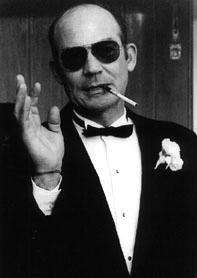
Like Raoul Duke, who was not like the others. Learn something.
Posted by Holden Oliver (Kitzbühel Desk) at 12:59 AM | Comments (0)
April 26, 2013
The Trial Lawyer: A Thousand Selves.
Harry consists of a hundred or a thousand selves, not of two.
His life oscillates, as everyone’s does, not merely between two poles, such as the body and the spirit, the saint and the sinner, but between thousand and thousands.
--Hermann Hesse, Steppenwolf (1927)
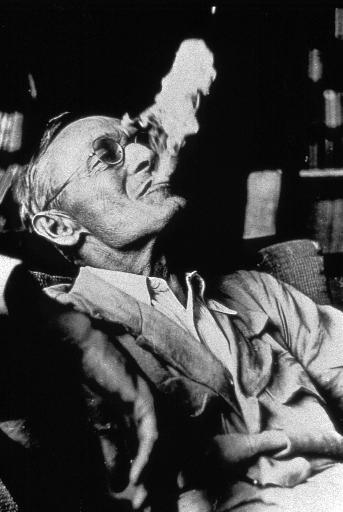
Posted by JD Hull at 11:45 PM | Comments (0)
April 25, 2013
Heiresses: All are Beautiful.
All heiresses are beautiful. --John Dryden (1631-1700)
.jpg)
And often bright: Dylan Lauren, Duke '96.
Posted by Holden Oliver (Kitzbühel Desk) at 11:59 PM | Comments (0)
April 24, 2013
Salary.com: Networking that actually makes sense.
See this one: 10 Networking Mistakes That Make You Look Dumb by Heather Dugan at the wonderfully titled Salary.com. "Read on for a few of the ways some networkers relegate themselves to the no-man’s land of unanswered calls and discarded business cards, and how they can improve."

Posted by JD Hull at 10:54 AM | Comments (0)
April 23, 2013
The Customer Experience: "You Gotta Serve Somebody".
Clients and customers are the Main Event. If you're in a service business, you, your company and your employees are second. Please get used to that. Anything else is a dodge and a ruse. See Rule 2 of our world-famous 12 Rules of Client Service. It's not about you and yours, Jack.
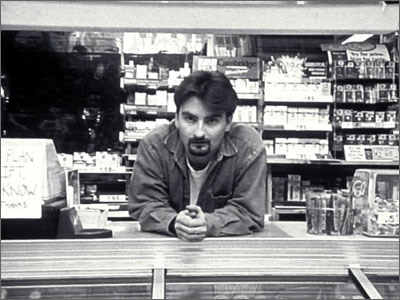
Dylan and Dante say you gotta serve somebody. Photo: "Clerks", Miramax Films.
Posted by JD Hull at 12:54 AM | Comments (0)
April 22, 2013
The 44th Earth Day: The Anti-War Movement's Biggest Success?
I think it's a good argument. And Earth Day, like most of the environmental movement, has been in large part a bi-partisan success, at that. But harnessing student unrest and flower power to make it all go was Pure Magic. Happy Earth Day. See this Earth Day: The History of A Movement at the Earth Day Network. Thank you Denis Hayes and Sen. Gaylord Nelson, my first real boss.

Gaylord Anton Nelson
Posted by JD Hull at 05:08 PM | Comments (0)
April 21, 2013
Paul Arden: When you can't solve a problem.
If you can't solve a problem, it's because you're playing by the rules.
--Paul Arden (1940-2008). Saatchi & Saatchi Executive. Legend. Wizard. Believed Fresh Thinking was Fun, Subversive, Lucrative.
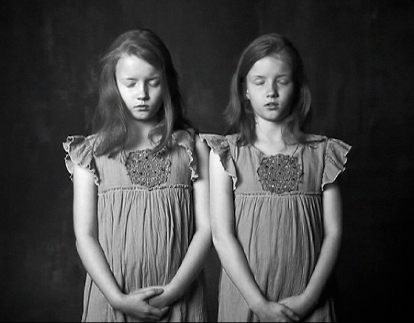
Posted by JD Hull at 03:59 AM | Comments (0)
April 20, 2013
Suspect No. 2: "We got him."
See the Associated Press item in The Herald Bulletin: Boston Bombing Suspect Captured. And many of us have a special appreciation for all the Watertown and Boston residents who supported and applauded the police for a job well done without any special show of vindictiveness or smallness toward either bomber suspect. Big hearts. Immense class. We don't know everything. The 19-year-old captured still needs to be tried.

Posted by JD Hull at 11:20 PM | Comments (0)
Sensitive Litigation Moment: Anton Chekov on Storytelling.
Don't tell me the moon is shining; show me the glint of light on broken glass.
--Anton Chekhov (1860-1904)

Posted by JD Hull at 11:00 PM | Comments (0)
April 18, 2013
On Entitlement: Check out the big comments on Greenfield.
See Monday's post "Yes, You Are Entitled". Classic looter v. lawyer exchanges.
.jpg)
The Greenfield Kid is back.
Posted by JD Hull at 11:11 PM | Comments (0)
April 17, 2013
Cultural Literacy: It's for Professionals, too.

Originally published by St. Martin’s Griffin in 1992, Wakefield's 400-page memoir is still in print, being reissued and seemingly everywhere with its fine snapshots of John Gregory Dunne, Joan Didion, Jack Kerouac, Mark Van Doren, C. Wright Mills, James Baldwin, Norman Mailer, May Swenson, Murray Kempton, William F. Buckley and Allen Ginsberg.
Posted by Holden Oliver (Kitzbühel Desk) at 08:58 PM | Comments (0)
"6 Votes Short": Senate Gun Background Check Bill Fails.
NBC: In blow to gun control backers, background check compromise falls 6 votes short.
Visit NBCNews.com for breaking news, world news, and news about the economy
Posted by JD Hull at 06:41 PM | Comments (0)
April 16, 2013
Real Heroes: Boston

Posted by JD Hull at 11:59 PM | Comments (0)
The Upanishads: There is no better place to start.
उत्तिष्ठत जाग्रत
प्राप्य वरान्निबोधत ।
क्षुरस्य धारा निशिता दुरत्यया
दुर्गं पथस्तत्कवयो वदन्ति ॥ कठ उपनिषद्Get up! Wake up! Seek the guidance of an
Illumined teacher and realize the Self.
Sharp like a razor’s edge, the sages say,
Is the path, difficult to traverse.--Katha Upanishad: 1.3.14, Vedic priest-poet (circa 1000-400 B.C.)

.jpg)
Posted by JD Hull at 11:59 PM | Comments (0)
April 15, 2013
Working in America: "Who's Really Entitled?"
See this one by a seer and rock star Eric Chester.

Posted by JD Hull at 11:29 AM | Comments (0)
More Great Djeli from The Netherlands: Mother Moon.
Posted by JD Hull at 11:24 AM | Comments (0)
April 14, 2013
The Customer Experience: Compete on Value and Long-Term Relationships.
Even now, in these markets, especially now, in these markets. If a client comes to your firm for price, it will leave your firm for price. Bet on it. To land and keep great corporate clients, never compete on price. Compete on value. Pitch only to, and work with, sophisticated and lawyer-savvy clients.
(Sure, for longstanding existing clients, it's a different story. You already have a relationship there, so you can and should "play with" your rates to reflect volume and reward loyalty.)
At best, the bargain hunter corporate client out there these days isn't a sophisticated user of legal services, is aware of this fact, lacks confidence in it choices, and therefore makes self-defeating demands for "price reductions" in order to hedge its bets. Bargain hunter clients cannot discern the difference between one set of corporate lawyers and another set, between the generic and the excellent. So it guesses. Don't go there. Don't pitch to them. Don't work for them on a long-term basis.
Pitch to, and work with, clients that "get" you and yours.

Devo still evolving in 2008: "Are We Not Men?" No more gyms in Akron, guys? Dang.
Posted by Holden Oliver (Kitzbühel Desk) at 10:09 AM | Comments (0)
Steve Descollonges' Great Djeli: The Hunter.
Via Santa Monica's Steve Descollonges
Posted by JD Hull at 12:00 AM | Comments (0)
April 13, 2013
Beggar at the Door of Art: Ninah Cummer, Jacksonville.

Ninah Holden Cummer (1875-1959). Circa 1900.
Posted by JD Hull at 12:39 AM | Comments (0)
April 12, 2013
Aristippus: Beyond Patriotism.
A wise man's country is the world.
--Aristippus (435-360 BC), as quoted by Diogenes Laertius, Lives of Eminent Philosphers
Aristippus was once shipwrecked on the island of Rhodes in the Aegean Sea. But he and his fellow survivors did not know where they were--or even if the island was inhabited. Once on shore and beginning to explore, however, Aristippus was quickly heartened and reassuring to the others when he saw geometric figures drawn on the sand. "There is hope", he concluded happily. "I see traces of men."

Posted by JD Hull at 11:00 PM | Comments (0)
April 11, 2013
A Mountain of Mystery Monument.
NBC: What the Hell is this? "A giant 'monumental' stone structure discovered beneath the waters of the Sea of Galilee in Israel has archaeologists puzzled as to its purpose and even how long ago it was built."

Posted by JD Hull at 01:49 PM | Comments (0)
April 10, 2013
If You Seek Longstanding Customers, Working = Marketing.

Small, powerful ads. See our Rule Six: When You Work, You Are Marketing. Every moment your law firm "works for a client"--it sends the client something, it talks with the client, it does virtually anything for or about that client that the client knows about or should know about--the firm transmits barrages of small but powerful ads. The client notices then and there.
Posted by Holden Oliver (Kitzbühel Desk) at 11:59 PM | Comments (0)
April 09, 2013
The Customer Experience: (1) Thanking People and (2) How You Do It.

"Inspiration" by Jean-Honoré Fragonard (1732-1806)
What do you write? Something short, heartfelt and original. Do not make the reader feel that he or she just died and went to Hallmark. You're annoying and even type with a lisp? Then just adopt a Hemingway style: simple, strong, short.
In case your Mother never instructed you, you're from Utah or you were stoned all seven years at Choate, let us remind you to never thank anyone for something truly important--a meeting, referral or a dinner--with anything but a prompt handwritten thank-you note. No valid excuses exist for not doing it.
Too few of us practice gratitude--in either business or our "other" lives--enough. Some say the practice of saying thanks is good for the soul. Others swear it's good for revenues, too. Even if you are still not convinced that thank-you notes are noticed and appreciated (they are), pretend that we know more than you (we do), and do it anyway (write us a note later).
Many business people and some lawyers with the highest standards and taste--from flashy types who might not wear socks to board meetings to loyal yeomen who still write strangely ("Enclosed kindly please find attached hereto previous to mine answering yours sent in due course as previously forthwith indicated under separate cover")--really do think that no written thank-you note means no class, as harsh and low-tech as that may sound.
Colleagues, business contacts and people worth impressing are more likely to forgive that you still can't dress yourself tastefully, you've never read anything other than Lord of the Flies, and you may be just another pedestrian white-collar dink writing painfully flitty I'm-a-lawyer-by-God confirming letters that would make Little Richard nervous on days he wore that diamond tiara.
A Word on Purifying, or Covering Up, Bad Gene Pools.
You're an American lawyer?
Sorry, but there are too many of us. Even sadder, in recent years, too few Ferraris and too many Ford Fiestas have been trying to run together without major damage in the same law firms. Larger firms to grow hired people all over the U.S. and the world they would not have even interviewed twenty years ago. And the performance of U.S. law schools (all of them) is at an all-time low. If you just graduated from one, you don't know anything, you are uniquely unprepared for the difficulty of private practice and--bonus--you are about to learn you don't like being a lawyer. Your work will be barely passable, at best, because you hate it. Work for clients and the efforts of more senior colleagues are compromised. And let's face it. It's pretty easy now to become a lawyer in America. It's almost as easy to eventually get a job in a "good" firm. No big deal. In some firms (but not all), once they get there, mechanics, robots and generic law cattle often become semi-respectable--and are even made partners. Sadly, the law, for many, has become a dodge of sorts.
All these things have destroyed many of the old gene pools (i.e., diluted talent) at even the best shops in the world. Regardless of your age or station, chances are pretty good these days you don't have any real class--natural, gradually acquired, or purchased--or as much as you once had, anyway. Yes, we all blew it. Everyone, including clients, suffered, and they know it, too. It's not like we're getting better or commanding much respect, except among ourselves.
There are a few bright spots, though. Twenty-year-old au pair girls from rural southeastern Europe are still very impressed with male American attorneys. Moreover, one recent national fashion study found that as many as two dozen out of approximately 700 Yank male attorney wearers--most of them large enough have their own zip codes--can still do justice to a Corneliani suit. And, hey, the law remains a pretty good business, Jack. Just get those time sheets in on time.
But the word's getting out. Our star fades.
Handwritten thank-you notes, however, is an area where you can always excel. You can rack up lost status points. Or you can get points you never deserved. Lots of them. You can even put on airs. No one will suspect that you're really from Newt County, Ohio, you attended Columbia Extension University, your wife Candace worked for 12 years at Sandusky's Adult World, or you think Flaubert is a way to prepare food.
Typed thank-yous are okay--but handwrittens are much much better. Use very good stationery. We suggest Crane's on the lower end, or something like stationery from Tiffany's, or a Tiffany-style knock-off, on the higher end. A studio card, maybe. Just make it plain. Simple. If you put your initials on it, put them at the top. If you use your full name--we're assuming here it's not too pretentiously long, or an assault on the ear if said out loud--put this either at the top or in the lower right corner of the card or paper.
If you do get personalized stuff, also put on the envelope the most basic street address to a home or business--but do that without a business entity mentioned. Dude, it's personal. No props allowed. Leave Acme Law Firm or Big, Myopic, Clumsy and Non-Responsive off of it. Do work closely with the vendor or printer--especially if you are trying to save money, and this may be an unusual order for their business. Call and check things a lot. Some smaller print shops apparently still prefer to hire anti-customer kids, middle-aged alcoholics, and special employees on Thorazine.
.jpg)
What do you write? Answer: Something short, heartfelt and original. Do not make the reader feel that he or she just died and went to Hallmark. It might even backfire.
What if I am mentioned or linked-to on the Internet? "Electronic thank-yous" by e-mails to express thanks for links, comments or mentions in posts or articles on the Internet--i.e., three different people link to your blog every day, you are working full time for clients, busy firing looter-style staff and associates, and writing op-ed pieces entitled "Winter 2010: NPDES Permitting in the American Midwest"--are totally okay. Short, sweet, and press "send". Blogging about you or your ideas is, of course, very nice--but it's not like they bought you dinner, or invited you up to Newport for the weekend. Besides, you'll always miss a few kudos thrown at you in the digital ether.
But what if I am trashed in the ether? A reverse thank-you? Sure, you may be insulted, purposely mis-paraphrased, misinterpreted, or just inadvertently misquoted. It happens. Remember, some bloggers and pseudo-journalists are (1) angry, (2) disorganized, (3) not people-oriented in the least, (4) anonymous "hider" types, or (5) essentially unemployed. And there are often sad but understandable reasons for all five. Well, there are three approaches to these folks. First, ignore them. Who cares? You are busy. Second, if you are dissed or insulted in cyberspace, and you are in the right mood, just respond with: "Wendell, Dude, if I were you--or someone remotely like you--I would not like me either." Finally, and third, study the overall techniques of our friend Redford, a full-time trial lawyer and widely-read blogger who manages to juggle, keep at bay and often humiliate legions of aggressive and often anonymous fire-breathing "experts" and other spinelessness without seeming to break a sweat.
Anyway, let's get back to manners. If you don't regularly thank people for links or mentions of you or your firm's blog or website, you are fouling your own nest. Not thanking people in the blogosphere is arrogant and dumb. It also adds to the notion that bloggers--not just lawyers, CPAs, actuaries and other well-meaning dorks--are insular, passive-aggressive lightweights lacking in people skills. Do develop some habits about thank-yous for everything--but make handwritten notes the default position for unusual and important courtesies.
Yes, handwritten. If you don't, bad things will happen:
1. No one will give you any more business, or invite you to Nantucket, Pointe Aux Barques or Aldeburgh.
2. People will say mean things about your dog, your wife, your girlfriend, or about all three.
3. Worse, they will trash you. If you went to Brown, snide people will remind you and your friends that Brown used to be the safety school for the Ivies. If you attended Duke, they'll re-float the completely untrue story that Duke exists only because Princeton had too much honor and class to accept Buck Duke's filthy tobacco money and re-name Princeton Duke. If Princeton, well, they'll just say you were always a little light in the Cole Haans anyway--you even type with a lisp--so what can you expect?
You get the idea. So thank people in writing for anything truly important. Handwritten is the general rule. There are few exceptions. Use very good stationery. Try to say something brief, genuine and fresh. E-mail only for a cyber-mention. If your website, e-zine or blog is so successful that your links, e-mails and comments are through the roof, hire someone else to do the thank-yous--written or electronic--for you.

(from past posts)
Posted by JD Hull at 11:14 PM | Comments (0)
April 08, 2013
Seizing the Net: You're "connected" out the Wazoo to folks via Social Media. Now what?
Certainly the Internet is fun and informative. We invest time in Facebook, LinkedIn, Twitter. Not all of us need to have business on our minds when we engage in it. But Social Media is also supposed to be a Tool. Most of us need to make Money. And you can do that with acquaintances you've landed easier than you can with friends. So just a thought: why not pick up the bloody phone and get started? E-mail maybe. Maybe Seize the Net?

Posted by JD Hull at 11:59 PM | Comments (0)
Hunter Thompson: On Quiet Desperation. It's Optional.
You tend to forget now and then that about half the people you meet live from one day to the next in a state of such fear and uncertainty that about half the time they doubt their own sanity. Their boats are rocking so badly that all they want to do is get level long enough to think straight and avoid the next nightmare.
--HST, Fear and Loathing on the Campaign Trail
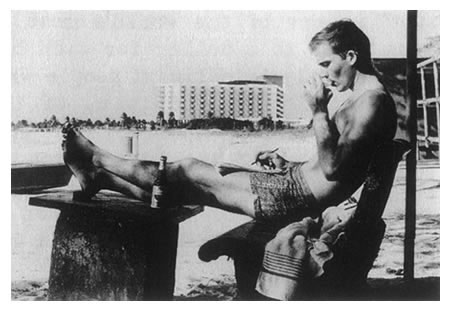
Posted by JD Hull at 11:59 PM | Comments (0)
April 07, 2013
Robert Emmet: "Let no man write my epitaph."
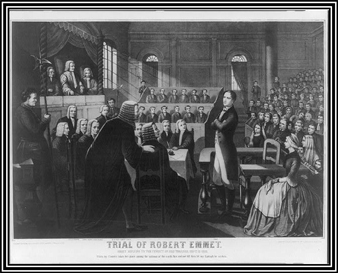
It the title of a 1960 movie with Shelley Winters, Ricardo Montalban, Jean Seberg and Burl Ives (playing a kindly and boozy Irish-American judge). It was based on a 1958 novel by Willard Motley. But the words came from a real guy, Irish nationalist Robert Emmet, during the "speech from the dock" before he was hanged by the British in 1803 for leading a march on Dublin Castle.
History doesn't think Emmet was the most effective Irish rebel who ever lived--but his final words endured:
I have but one request to ask at my departure from this world – it is the charity of its silence. Let no man write my epitaph. No man can write my epitaph, for as no man who knows my motives and character dares now to vindicate them, let not prejudice or ignorance asperse them.
Let them rest in obscurity and peace until other times and other men can do justice to them. When my country takes her place among the nations of the earth, then shall my character be vindicated, then may my epitaph be written.
I think of Emmet's words this way--and my sense is that nearly all of the people I work with for clients, or have as friends, or look up to, think and feel the same way:
No one but you should have the right to define who you are. Don't live your life by 'default' or design of another person or thing. Think your own thoughts; make choices. Avoid defining yourself based on 'one thing', even a good one thing: a political party, a philosophy, a family, a company, a region, a nation. Try out different people, and ideas. Mix, match and avoid the small-mindedness of certitude. Don't whine, do something.
Posted by JD Hull at 12:00 AM | Comments (0)
April 06, 2013
"I will not compliment smart accomplished women on their looks. I will not compliment ..."
This? This is madness. NBC: "Obama apologizes after saying California attorney general is 'best-looking'" AG.

Kamala Harris
Posted by JD Hull at 11:59 PM | Comments (0)
Human Gargoyles: Meudon, France, 1908.

Meudon, France, Bellevue section, about 10 miles from Paris.
Posted by Holden Oliver (Kitzbühel Desk) at 11:59 PM | Comments (0)
Heroes: Getting Lost with Sterling Hayden.
Don't talk to me about finding yourself. Only as you are lost is there any hope for you.
--Sterling Hayden, actor, soldier, writer, spy in The Wanderer (1963)
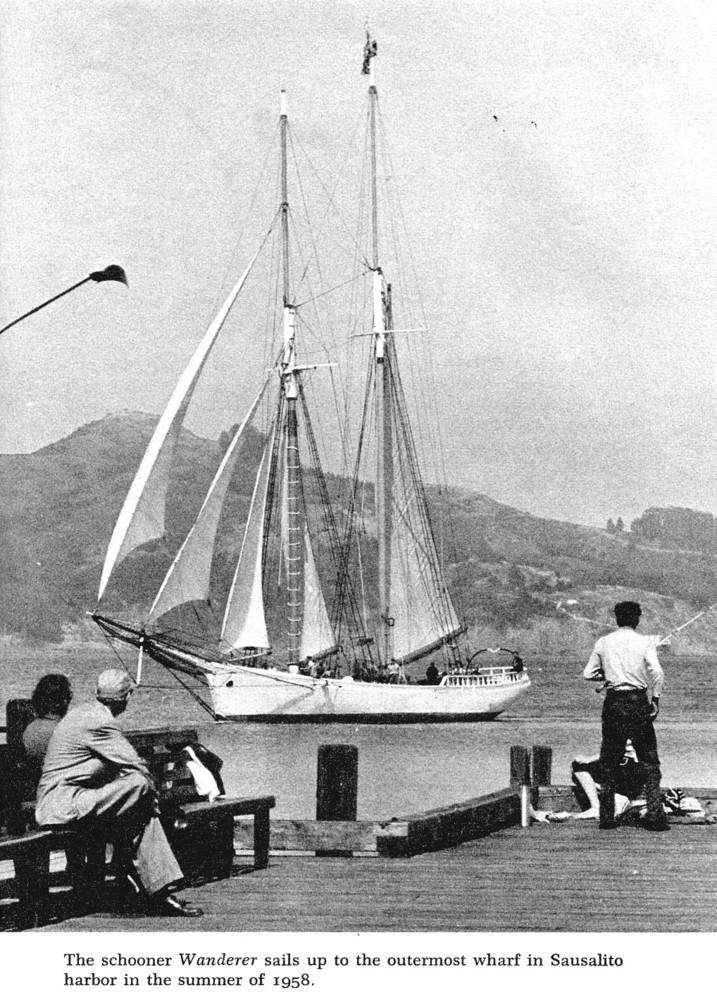
Posted by JD Hull at 11:59 PM | Comments (0)
Taking Depositions: It's "discovery". Dig, probe and claw for the bad parts of your case.
There is a reason why it is called discovery.
This is the time to invite the other side's witnesses to tell you everything they possibly can about why your side should lose. Revel in these "bad" answers - don't cringe. Draw them out and blossom them as fully as the witness is willing to go. Make sure that you carefully dissect every part or premise of a "bad" answer...
From a Stewart Weltman gem: "The Two Most Important Questions to Ask During A Discovery Deposition-Part I".

Drawing a bead: Badness needs to get out in the open.
(Photo TriStar Pictures)
Posted by JD Hull at 12:44 AM | Comments (0)
April 05, 2013
What a great 1st chair does 60 days before a civil trial.
Quick, dirty, fun and well worth the time and effort. If you will be lead counsel in your next jury trial, this suggestion: no more than 60 days from trial, read over and take a proverbial bath in all of the written discovery responses and--if time permits--every deposition transcript in the case. Work through the materials relatively quickly but as thoroughly as you can. In particular, do one good read of any deposition you did not take yourself. And of all written and signed discovery responses (you can skip the documents). Go back to the start of the case. Do not rely only on deposition summaries or on outlines of direct or cross examinations prepared by others. The process of "immersing yourself" in all the discovery will suggest new sub-themes, patterns, weak points and even a new fact or two in your opponent's case that meant little to your side when it was first produced. Now discovery will take on new and instructive meanings. Having gone through that exercise, you will be steeped in the case. You'll have knowledge that will give your examinations of witnesses credibility, authority and command. Try it.
Edward Bennett Williams
Posted by JD Hull at 08:03 PM | Comments (0)
Southern Fried Rapture.
In the bright lights of Memphis and the Commodore Hotel,
Underneath a street lamp I met a Southern Belle.
She took me to the river where she cast her spell
And in that Southern moonlight she sang the song so well.
Posted by JD Hull at 12:00 AM | Comments (0)
April 04, 2013
Writing Well: Dorothy Parker on Los Angeles.
Hollywood is the one place in the world where you can die of encouragement.
--Dorothy Parker (1893-1967)

Posted by JD Hull at 11:19 PM | Comments (0)
In Praise of Structure: Clients and Customers, Getting Them and Keeping Them.
.jpg)
"E" working at stuff he isn't that good at.
As with client service, our standard for doing the work is embarrassingly low--and we are exporting that low standard whenever and wherever we can. Mailing it in. Mediocrity. Laziness. Being Limp. In effect, we teach it.
Do lawyers know how to get things done, done right and done on time? Do we even value that? I wonder. No, I am not talking here about the simple "keeping face" or survival requirements of meeting client deal or court deadlines, or even about the clichés of "working hard", creative thinking, "out of the box" thinking, being persistent, or "working smart".
I mean structure--a real standard for working--and "practicing structure" every day. It's the discipline of: (1) having a plan or strategy for any one project (client or non-client), (2) meeting internal project deadlines (not just "jurisdictional" ones) no matter what, and (3) insisting that everyone in your shop "buy into" the discipline of keeping to that overall plan or strategy and timetable.
"Structure" is not just having a plan and the hard process of getting things done. It's a frame of mind and a value which must be sold to others in your shop--like the importance of making that 5 minute call to a client about a loose end at the end of the worst day you can remember, even while you could do it the next morning at 8:00.
It's realizing that letting anything but emergency tasks "slide" makes you inefficient, unlikely to meet your real goals, and tired.
Do you go into work every day with an idea of what needs to be done on each project, and knowing the difference between "important" and "urgent"?
Example: Monday is your deadline to have the final changes and notes to your web designer on your new firm website, an important but not urgent project you've talked about at internal meetings for months. So far, for once, you have been on track.
But on Monday a longstanding client calls with two new projects; the new projects are exciting but not THAT urgent in the sense they need to cut into internal deadlines and other goals for Monday. You need to take some first steps, though, to get on top of the new matters for your client. After all, these folks are the main event.
So we have a key ongoing internal project v. new client project. Which gets the most attention that day? Which slides?
Answer: they both get attention, and neither slides. The website (long-term important) and the new client project (short term important) are both critical projects.
Years ago, the Stephen Coveys and Edwards Demings out there pointed out that business people burn themselves out by waiting around only for "the urgent" in a kind of manic crisis management that keeps other important things from ever getting done or ONLY getting them done when they morph into a crisis.
For lawyers, other examples would be only respecting deadlines like transaction closing dates and court-filing deadlines--to hell with everything else.
For a long time I've thought that American business schools and the training programs of global and often publicly-traded companies do a much, much better job than do law firms of training recruits to value and adhere to the structure of a plan on an item for action. It's almost as if law school and firms deem us all such "professionals" and "artists" that we are beyond learning skills of project planning and execution.
What a crock. Because you're a lawyer, or other professional (MD, CPA, engineer, broker), you now have a license to be incompetent, semi-competent, or a chronic screw-up on the details of getting much (if not most) of your work done? You're special? An artiste?
Of course not.
Not learning the value of pushing non-urgent but important things along at a steady pace has cost us dearly. As motivated as lawyers often are, our discipline for sticking to anything and seeing it through is often poor; again, unless it's urgent, we just don't see its value. Do our best clients run their businesses that way?
This attitude is the norm, and we lawyers--who rarely innovate or take a leadership position on anything in commerce--are just fine, thank you, with it. After all, "all the other law firms" are mediocre on the discipline of getting things done, and have "crisis-only" mentalities. "Why shouldn't we be that way?"
So we waste time blowing off important, but longer-term projects. Worst of all, we send to others in our firms, and especially to younger lawyers, the message:
"No worries--just work on a barely adequate level; don't do things until you have to; and if it's not urgent, let it slide."
(from earlier posts, beginning 2007)
Posted by JD Hull at 12:59 AM | Comments (0)
April 03, 2013
Absolutely Modern: Rimbaud, Technology & Lemmings.
One must be absolutely modern. --Arthur Rimbaud, celebrated Bohemian, 19-year-old Frenchman, 1873
To be absolutely modern means: never to question the content of modernity and to serve it as one serves the absolute, that is, without hesitation. --Milan Kundera, Immortality, 1991

Kundera (b.1929)
Posted by JD Hull at 11:59 PM | Comments (0)
Technology: Solving Any Problems with Those Toys & Apps? Or into Some Bad Craziness?
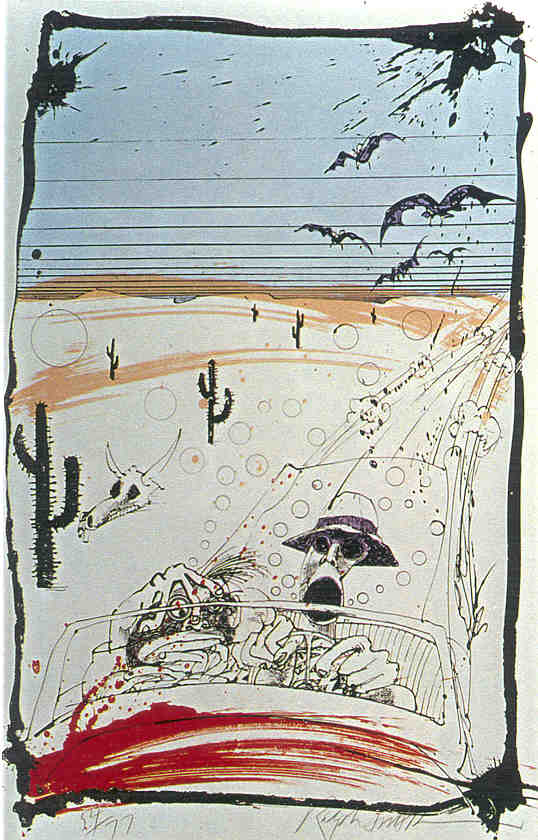
E-mailing "just because" is Some Bad Craziness.
What happened to vibes, voices, faces, bodies, winks, hand gestures, touching another's hand or shoulder impulsively, stares, grins, frowns, hand-written notes, human electricity, NOT-typing, non-virtual joking, yelling, swearing, ragging and flirting, totally un-PC confrontation, intimacy and the "God-in-the-room" magic that starts with two breathing humans in one 3-D place? --What About Clients/Paris?
I remember when I first got e-mail, back in the mid-1990s. I would rush home with great anticipation and dial in my 4800-baud modem and I would have four messages from four very good friends. Now I get up in the morning and go to my computer...and the anticipation I once felt has been replaced by dread. --Malcolm Gladwell, The Tipping Point
Are we not Men? --H.G. Wells, and Devo.
Quit hiding and pick up the phone. Meet with people. Man up. Woman up. For starters, e-mail is an overhyped, misused tool. And so are you and I if either of us use it without thinking. I receive about 120-150 non-spam e-mails a day. I write about one third that many, most as replies. Usually short ones. They are often soulless, and easy to misunderstand, even when I try to be precise. Unless I am scheduling when and where to meet someone, I am not sure that I see the point of it anymore.
The e-mails I get back are often worse than the ones I write.
The truth: most U.S. lawyers can't write. When we write, we "talk to ourselves"--like mental patients often do while rocking back and forth to pacify themselves. The mantra here: "I'm special-I'm special-I'm special". And typing it ourselves? It makes the interior babble even worse.
My rule, lately: If I spend more than two hours total a day facing a computer screen, I think of that day as a Failure. My job is to think, brainstorm, plan, organize, write, persuade and solve problems. If I spend more than two hours being my own (and third) administrative assistant--and that includes both productive "thinking" and email-returning "non-thinking" typing--I am just another new Insular Robot Worker-Human.
Forget about being One with the Cosmos; I am barely One with the Zip Code, the Suburb, or the Office Building. Even in my office, with people around, I am an Electronic Island With Cool Toys. Alone. Cut off. Isolated. In reality, and ironically, I am not communicative at all. Ah, good morning fellow dumb-downed robots.
You have a really good idea? About our firm, or solving a problem for a client? If you e-mail me about it, it's very likely that you have become insane. Whether you are down the hall, or 2000 miles away, or even more, you have lost it.
Okay, e-mail me once. Yes, writing helps put your thoughts in order. Sure, get my attention. Then call me. Or meet with me. We can make your idea better while we are talking--and do that quicker. Get the juices flowing.
Maybe I can help. Voices and "bodies in the room" are perhaps 100 times faster and better at defining and solving a problem. At least. Add a third human--you will get more. Humans are damn fine machines when plugged into one another.
But, and I repeat: if you e-mail me about a truly great idea, and expect to develop the idea efficiently in an e-mail discourse, you are truly insane. Get the net.
Back to Gladwell, in the opening quote. As it's been eight years since he wrote the above, and he is even more famous, Gladwell surely gets more than 100 each day. It's a mantra now that communications technologies save time and money, including bucks on brick and mortar rents for business. It's all true, exciting, Yankee innovative-cool and--a word film actor William Hurt uncannily slips into so many of his lines over the years--forever "evolving."
See Me, Feel Me, Call Me. But some of us don't even talk as much to people we see every day at work. We do e-mail. What happened to vibes, voices, faces, bodies, winks, hand gestures, touching another's hand or shoulder impulsively, stares, grins, frowns, hand-written thank you notes, human electricity, NOT-typing, non-virtual joking, yelling, swearing, ragging and flirting, totally un-PC confrontation, intimacy and the "God-in-the-room" magic that starts with two breathing humans in one 3-D place? Or at least on the phone?
The electronic toys we have are supposed to be helping tools--not the main event. Do we appreciate the way e-mail, search engines and social media (yes, including blogging) often degrade and dumb down the complexity of hard problems in this world? Has all this made us smarter and better?
Or are we just lemmings, cattle and sheep--lulled into thinking we must be doing good work if these new tools are so amazing? Is Google--how many impulses, instincts, and synapses does Google really have?--more inspiring and useful than the wonderfully fast and storied brain of that lawyer next door?
Has "tech" permitted a large cross-section of previously functional humans to hide from--and never learn and benefit from--the complexity of life and work?
And from each other?
(Art: R. Steadman)
Posted by JD Hull at 10:59 AM | Comments (0)
Oh New York City, you talk a lot.
You look like a city. But you feel like a religion.
--L. Nyro, 1969
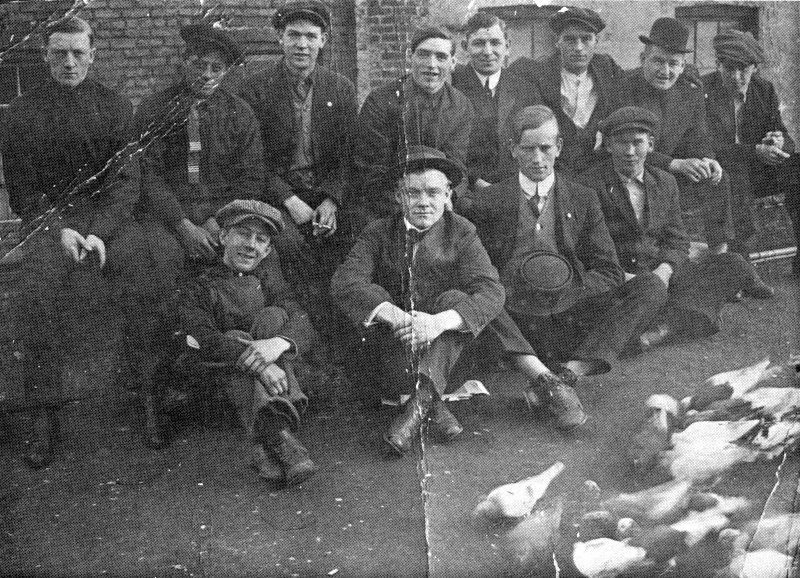
The Gophers, a Hell's Kitchen gang, c. 1910.
Posted by Holden Oliver (Kitzbühel Desk) at 12:28 AM | Comments (0)
April 02, 2013
Un-PC Mrs. Patton of Princeton: You got moxie, Sweetie.
And you are right, too. Read the piece in Jezebel, follow the links, read her letter to the Daily Princetonian and tell us we're wrong. This 1977 Princeton grad says to Princeton women to look around for a spouse while they are still undergrads on the basis of this hard cold fact: you will never be around this many talented people again. Assuming the same goes for men (we have no reason to think it does not), we agree wholeheartedly with her advice. We do admire this lady. And she's destroyed just about every adversary she's had in her flash rounds of television interviews. "Elitist"? Maybe. But true. Bravo, Mrs. P, for bucking the cookie-cutter thought police.

Big Ones: Susan A. Patton, '77, is a Mensch.
Posted by JD Hull at 02:43 AM | Comments (0)
April 01, 2013
Our Hands-Downs Favorite April Fool.
Posted by JD Hull at 12:40 PM | Comments (0)
